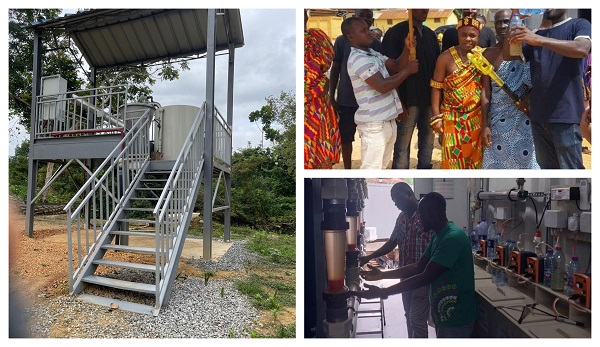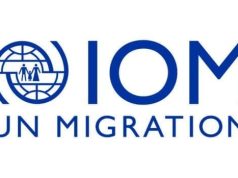Osabarima Asare Twe II, the Chief of Kade (Kadehene), has addressed the poor water supply situation in Kade, the district capital of Kwaebibirem in the Eastern Region of Ghana. Through his initiative, he has established a state-of-the-art water treatment plant to provide clean, safe, and hygienic water for his people.
The water treatment plant uses water sourced from the Birim River, which has been compromised by illegal mining activities known as “galamsey.”
Osabarima Asare Twe II’s vision is to provide quality water for his community and to complement the efforts of the government. This initiative is unprecedented in Ghana and deserves significant recognition.
In Akan culture, such achievements are applauded with the appellation: “Ɔsabirima ayɛ bi o, wayɛ bi aboa, Ayɛboafo, yɛma no amo!” This translates to the traditional leader having done exceptionally well and deserving commendation.
UN SDG 6: Clean Water & Sanitation
Established in 2015 to replace the Millennium Development Goals, the United Nations General Assembly set forth 17 Sustainable Development Goals (SDGs), all interconnected.
SDG 6 focuses on Clean Water and Sanitation, urging UN member states, including Ghana, to “ensure availability and sustainable management of water and sanitation for all.” This goal is connected to SDG 1 (No Poverty), SDG 2 (Zero Hunger), SDG 3 (Good Health & Well-being), and SDG 4 (Quality Education).
Poor countries often struggle to provide clean water due to budget constraints. Without access to clean, safe, and hygienic water, achieving zero hunger and ensuring good health become challenging. Quality education is also impeded if school children lack access to safe water.
In line with SDG 6, Ghana aims to have approximately 70% of the urban/peri-urban population and 50% of the rural population connected to safely managed pipe water networks by 2023.
The people of Kade Traditional Area, in the Kwaebibirem District of the Eastern Region, are direct beneficiaries of Osabarima’s initiative. This project will contribute to Ghana’s progress towards achieving SDG 6.
Potential for foreign investment attraction
Osabarima’s initiative could attract foreign or international investment, potentially serving as a catalyst for similar projects across the country.
According to the 2021 Population and Housing Census (PHC), 87.7% of Ghanaians have access to basic water supply services. However, 8% still rely on unsafe water sources despite the high access rate.
The World Bank Report of 2012 highlights that Ghana loses US$290 million annually due to poor sanitation, with unsafe water contributing significantly to this loss.
Maintenance culture
The water treatment plant will require a strong maintenance culture. Studies by Globalwaters.org show that approximately 25% of water and sanitation infrastructures in Ghana become non-operational within just 5 years, with many remaining facilities either underutilized or repurposed.
GWJN and CONIWAS
The Ghana Water and Sanitation Journalists Network (GWJN) and the Coalition of NGOs for Water and Sanitation (CONIWAS) are independent organizations working closely with state institutions such as the Water Resource Management, the Ministry of Sanitation & Water Resources, and the Ghana Health Service to improve water supply services.
GWJN and CONIWAS could partner with Kadehene’s initiative to contribute positively towards achieving SDG 6.
Public health concerns for GHS
Water supply is a public health issue, and the Public Health Department of the Ghana Health Services (GHS) should take an interest in this project.
Amoako-Gyampah (2019) presented a conference paper titled “Health through Pipes: Towards Hygienic and Potable Public Water Supply in the Gold Coast from the Late 19th Century to 1950.” The paper examines colonial attempts at providing potable water in the Gold Coast and highlights that even in the 21st century, the initiative in Kade underscores the challenges faced in public water supply.
Illegal mining activities, or “galamsey,” have severely damaged the Birim River, highlighting the need for urgent public health action. Osabarima’s initiative exemplifies outstanding leadership, and it is crucial for the Ministry of National Security to consider the river’s condition as a national security threat that requires serious attention.














